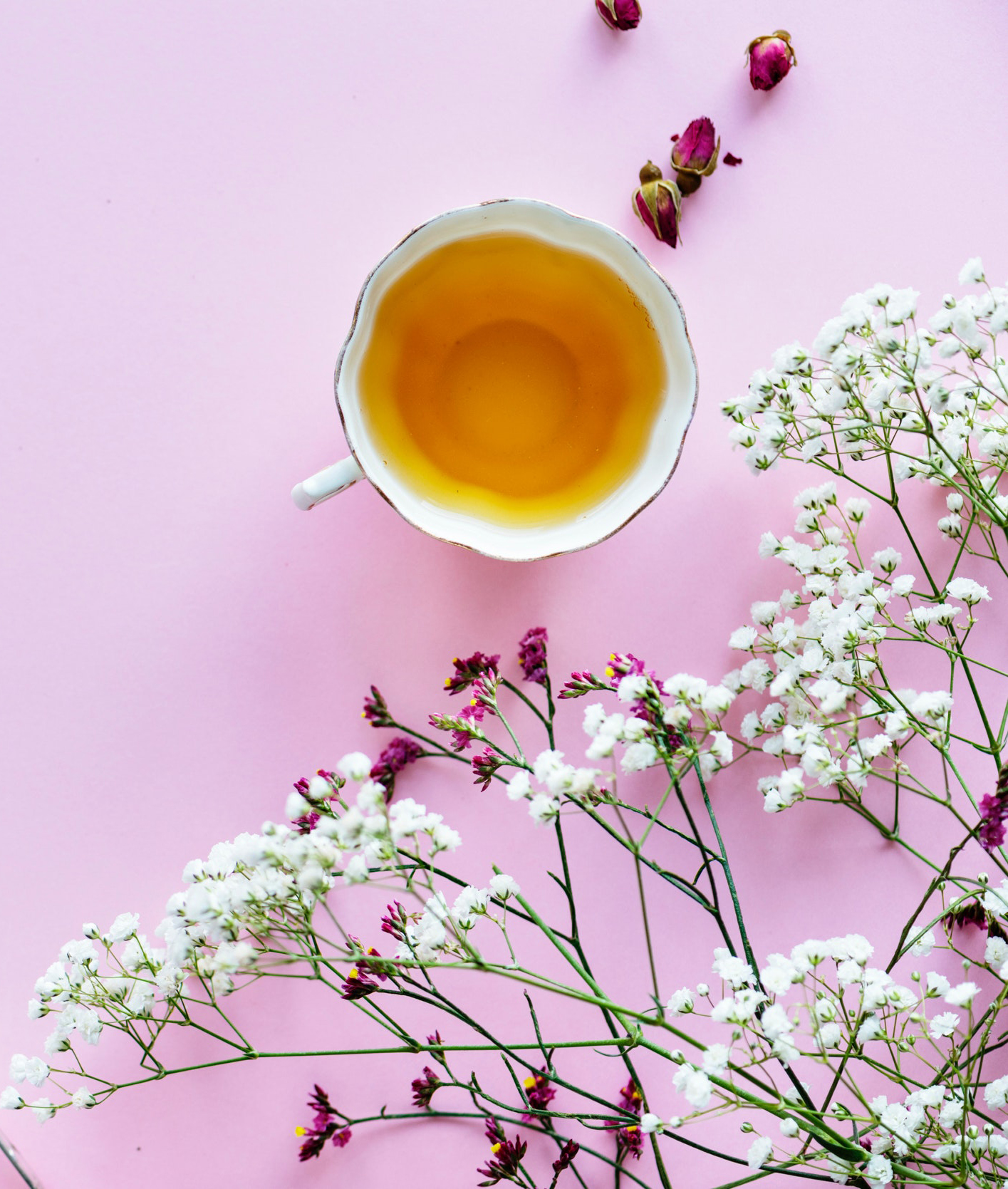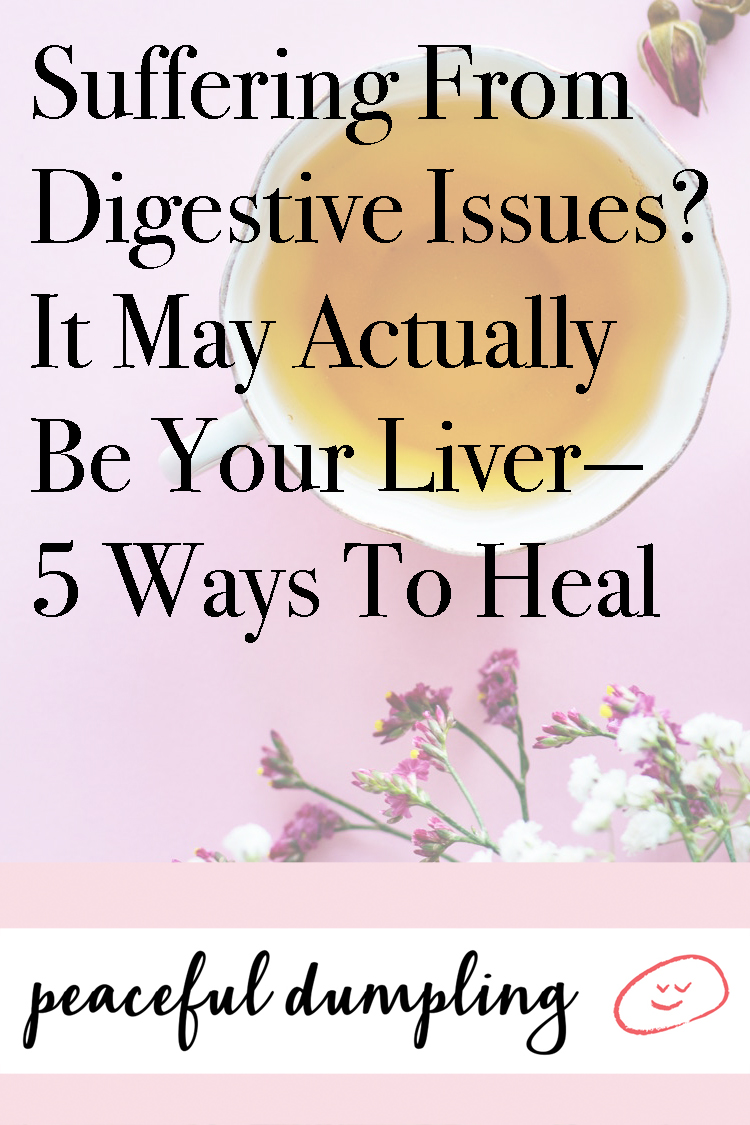For a long time, I have experienced digestive issues. I always tried to address it with diet, or anything aimed directly at my digestive system. With the help of my naturopath, we instead primarily aimed treatment at the liver. Lo and behold, my bloating, gas and cramps seemed to dissipate. From this, I learned that the liver is the origin of a lot of what goes on inside your body, especially digestion.
Your liver is your largest organ, second to the skin. And your liver is your best mate.

Why is the liver so important?
The liver filters the toxins in your blood in two phases. These toxins may have come from anything you have absorbed through the skin, eaten, drank, or inhaled. This includes the chemicals that come from the break down of alcohol, drugs, caffeine, nicotine, heavy metals, and chemicals contained in your food – basically anything that your body considers poisonous.
As well as its fine-tuned ability to detoxify, the liver has several other roles, too:
– Storage of sugar for energy and therefore regulation of blood sugar
– Storage of important vitamins and minerals
– Production of important components of the blood and for blood clotting
– Recycling of red blood cells
– Antioxidant activity to destroy free radicals which are a threat to your body
– Production of what is known as bile, which assists in fat digestion
Do you see why supporting this powerhouse is important to keep things running smoothly? In fact, in naturopathy, supporting the liver is often a go-to treatment, given its role in so many bodily functions.
Henry Lindlahr is the author of a well known naturopathic medicine book called Nature Cure. According to Lindlahr, there are three primary causes of disease – 1. ‘Lowered vitality’ 2. ‘Abnormal composition of blood and lymphatic fluid’, and 3. Accumulation of morbid matters and poison. This third one is directly related to the liver. When the liver isn’t functioning at its fullest potential, this runs the risk of toxins building up in the blood, tissues, and organs of the body.
The outcome of this is widespread, varied and not desirable –
– Skin issues including acne, rosacea, liver spots and pruritis
– Yellow coating on the tongue
– As mentioned, digestive issues, particularly relating to the digestion of fats. Think reflux, nausea, food intolerances, indigestion, constipation, and possibly irritable bowel syndrome (IBS)
– Blood sugar imbalances
– Hormonal imbalances
Supporting your liver by lifestyle choices that serve your beautiful body can help prevent any sort of toxin or waste build up.
Here are 5 lifestyle choices that can assist your liver.
1. Diet
We all know a balanced and varied diet is the way to go for overall health. Specific to the liver, consider these vegetables especially – cabbage, broccoli, brussel sprouts, celery, and kale. These supply the specific nutrients for the two detoxification phases. Finally, omega 3 essential fatty acids are required during the first phase. Consider raw sources such as walnuts and flaxseeds.
2. Medicinal herbs
Herbal medicine is so powerful. Herbs contain naturally occurring active ingredients that work synergistically with one another. There are a few mentionable herbs that the liver loves. In general, herbs can be categorized into what their “action” is. Liver herbs have “hepatic” actions including “hepatoprotectives” (protects the liver), “cholagogues” (increases flow of bile) and “bitter” actions.
Some herbs include:
Andrographis
This herb does it all for the liver. Andrographis has a bitter action. Bitters are stimulating to the overall function, detoxification and the flow of bile. Andorgraphis is also a heaptoprotective – it protects the liver and the liver cells. In fact, in Ayurvedic medicine, Andrographis is indicated often for liver issues.
Turmeric
Turmeric is a choleretic which means that it encourages production of bile. It is also considered an alterative which means that is supportive in the detoxificiation process. In addition, turmeric is an awesome herb in general with other actions including an impressive anti-inflammatory and antioxidant action.
St. Mary’s Thistle
This herb, again, protects and also restores the liver. In addition, it increases the bile flow. It is used to regenerate the cells of the liver when they have become damaged. So it is often indicated in drug, alcohol and diet-induced liver diseases.
3. Moving your body

Like diet, moving your body is amazing for overall health. I like to call it body movement because exercise sounds like a chore and sometimes a difficult thing to commit to most days, whereas moving your boy sounds appealing and realistic. Moving your body keeps everything inside moving too. Walking, swimming, dancing, jumping, yoga…anything that sings to your heart won’t hurt the liver!
Lindlahr suggests a great exercise for a sluggish liver. It’s also great for those abdominals.
1. Lye flat on your back
2. Place your hands under your head
3. Keep your legs straight and raise the right leg as high as you can, then slowly lower it. Alternate between legs. Repeat this as many times as you’d like.
4. Eventually, you can work up to both legs at once.
4. Acupuncture
To put it very basically, the Chinese Medicine philosophy bases its treatments on the meridians (energy channels throughout your body), yin and yang and Qi (similar to vital energy). Acupuncture has been used successfully and in adjunct to Western medicine to treat liver diseases such a cirrhosis. An acupuncturist may stimulate the liver point which helps move Qi through the liver meridian. In Chinese Medicine, it is said that the liver organ suffers the most at the hand of stress and boy is modern life stressful. Which brings me to my final liver supporting tip.
5. Stress management
Chronic and acute stress are so common that it has, unfortunately, become the norm. Our entire bodies, its systems, organs and cells are all affected by this. Stress management is different for everybody and it’s about discovering what you can implement daily to help yourself out. These are just some ideas –
– Having a diary/planner to organize yourself
– The herb Withania somnifera, also known as Ashwagandha. This herb is known as an adaptogen and assists the body in dealing with stress.
– Yoga – explore different kinds of yoga like hatha, kundalini, hot, power or just follow your body where he or she wants to go
– Writing down anything that is going on in your head
– Creative and grounding activities such as cooking, creating music, making something with your hands and anything that uses your creativity
– Talk to someone, to yourself in the mirror, talk to your dog…just say whatever is on your mind, out loud!
What to learn more? Consider consulting the following resources:
Nature Cure by Henry Lindlahr
Materia Medica by Carole Fisher
The Herbal Handbook: A User’s Guide to Medical Herbalism by David Hoffman
Biology: The Essentials by Marielle Hoefnagels

How have you shown your liver love today?
Related: Need A Mental Boost? Take These Supplements And Say, Buh-Bye, Brain Fog!
From Stress To Beauty, These Vegan Wellness Tonics Help With *Everything*
Get more like this—Subscribe to our daily inspirational newsletter for exclusive content!
__
Photos: Pexels
